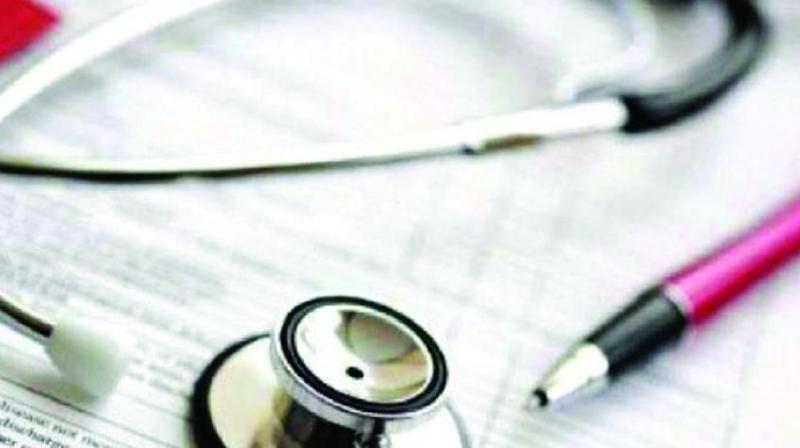Rajya Sabha passes Medical Bill, doctors to boycott health services today
The Telangana Junior Doctors Association, in a press statement, said it will continue boycotting all medical services on Friday also.

Hyderabad: Calling it a black day in the history of modern medicine, doctors decla-red that protests will continue across the country as the National Medical Commission Bill was passed in the Rajya Sabha on Thursday.
The Telangana Junior Doctors Association, in a press statement, said it will continue boycotting all medical services on Friday also.
The Bill provides for setting up a National Medical Commission to replace the Medical Council of India, which will develop and regulate all aspects of medical education, profession, and institutions.
The provision which is being opposed, and which was highlighted by the Congress and the SP, was to give licences to 3.5 lakh “unqualified, non-medical persons” to practise modern medicine. This they said would institutionalise quackery.
The Bill, which gives more power to the Centre, was moved by health minister Harsh Vardhan for passage in the Upper House despite stiff protests from the medical fraternity. Senior Congress leader Jairam Ramesh said, “We urge the government to drop a provision which will legalise quackery and refer it to the select committee as this was not in the original bill vetted by the Parliament-ary Standing Committee on health.
Medical Bill will give more power to Central govt
The representation of members in the NMC is against the interest of states. The Bill provides for representation of 14 members from the Centre, just six from the 29 states, and five to be elected who have a medical background.
With this kind of representation, an individual state will have to wait 12 years to be on the NMC. It was suggested that the Centre increase state representation to 15 at least.
The amendment of Mr Ramesh was supported by Samajwadi Party’s Ram Gopal Yadav who stated that the Bill had been examined by the chairman of the parliamentary standing committee on health, and section 32 must be removed.
The Bill tilts the balance of power in favour of the Centre. Health is a state subject, but the decisions about policies will now be decided by the central government.
There are 76,000 MBBS seats of which 40,000 are in government colleges. Of the remaining 36,000 seats, 30,000 are in private colleges and 6,000 in deemed universities.
Dr Harsh Vardhan said that out of 56 recommendations made by a parliamentary panel, the government has fully accepted 40, seven partially, and rejected nine.
Highlighting key features of the Bill, the minister said there are some apprehensions by the Indian Medical Association and doctors, but the Bill will in no way cause “inconvenience to students”.
He sought “unanimous” support for the Bill, saying it is a very important piece of legislation to improve medical education in the country.
Participating in the debate, BJP leader Suresh Prabhu stressed on quality of education and medical services in the country and the importance of conforming to national standards.

